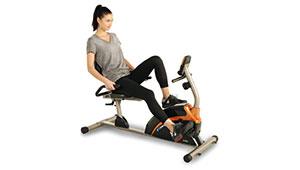3. Ride long distances.
Long rides improve your aerobic and muscular endurance. More than that, they stress your cardiovascular and muscular systems in a way that facilitates the physiological adaptation process. Long rides are the most effective way to increase training volume and stress; however, keep two points in mind. First, long is a relative term. If your longest ride to date is two hours, completing a three-hour ride will have a significant impact. Likewise, if you routinely complete four-hour rides, keep working until you can finish a five to six-hour jaunt. Second, you don’t have to complete a long ride every week. A long day in the saddle every three to four weeks will have a significant impact on your power output and overall fitness.
4. Modify your cadence and gearing patterns.
Physiological adaptation occurs when the body encounters stresses it has not had to deal with previously. If you do the same workouts again and again, your body gets used to them no matter how hard they are, which can lead to a performance plateau. One way to build diversity into your regimen is to alter your cadence and gearing patterns. For example, if you typically perform lactate threshold intervals in a relatively small gear at 95 to 100 rpm, you can better facilitate the adaptation process by doing some of those intervals in a bigger gear at 80 to 85 rpm. Likewise, if the cadence for your long ride is typically 90 to 95 rpm, spend some time pedaling a bigger gear at 80 to 85 rpm.
5. Push through a personal barrier.
In other words, do something you have never done before. For example, if your current long ride is three hours, build up to four hours. If you normally do one long ride during a mesocycle (e.g., every four weeks), try two long rides. If you typically climb your favorite hill three times, climb it four times. If your personal best up that hill is 12 minutes, set a seasonal goal to break 12 minutes. If your longest lactate threshold interval is 15 minutes, increase it to 20 minutes. If you currently ride four days a week, try riding five days a week. If you typically perform two-day high-intensity training blocks, try a three-day block.
If you are a multisport athlete who normally performs one brick workout in a microcycle (e.g., every week), perform two bricks in your next microcycle. Anything you do that you have never done before will help facilitate the physiological adaptation process. But be careful, this can be a recipe for overtraining if you do not allow for sufficient recovery.
 READ THIS NEXT: 5 Simple Ways to Increase Bike Power
READ THIS NEXT: 5 Simple Ways to Increase Bike Power
- 2
- of
- 2








Discuss This Article